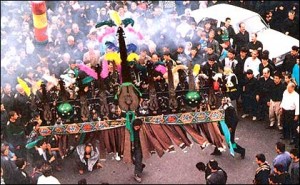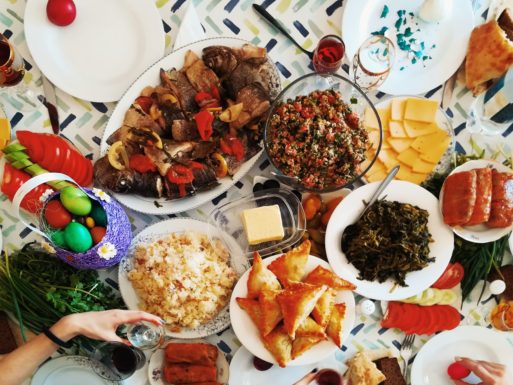 Early Indo-Iranians, the group of people residing in present-day Iran, or ancient Mesopotamia, before the third century B.C.E., held beliefs and rituals surrounding death that involved a unique tie to the New Year.
Early Indo-Iranians, the group of people residing in present-day Iran, or ancient Mesopotamia, before the third century B.C.E., held beliefs and rituals surrounding death that involved a unique tie to the New Year.
Indo-Iranian beliefs about death and the afterlife saw the human spirit world closely connected to life on earth. There was no heaven or hell, reward or punishment. The afterlife was simply a continuation of earthly life in a subterranean “kingdom of the dead”.
After death, the spirit would leave the body and linger on earth for three days before descending into the kingdom of the dead. Once there, spirits — called “urvans” — depended on their living descendants for survival. Descendants made offerings of food and clothing through special rituals throughout the year. The first year was the most crucial, when it was assumed that the deceased wouldn’t have assimilated into the culture of the world of the dead yet. The majority of offerings were made during this period.
In these ancient funeral rituals, for the first year families of the deceased would do things like pray, fast and make blood sacrifices throughout the first year, with intense frequency during the first three days, then slowing to daily for thirty days, then once every thirty days, until after the first year, when offerings were ritually made just once a year.

Once a year, everyone would make a general offering to all lost loved ones. This was the feast of All Souls, called Hamaspathmaedaya, which was celebrated on the last night of each year. They believed the spirits of the world of the dead would return to visit their old homes that night and depart at sunset on New Year’s Day.
At the turn of this New Year, you, too, take a moment to reflect on and honor loved ones you’ve lost. You can incorporate religion or ritual or family traditions — or just take a walk and allow yourself to ponder and celebrate their lives. Commit to honoring them and caring for yourself in 2013, coping with your lingering grief, and allowing yourself to enjoy life after the loss.

 Funeral Rites in Ancient Iran
Funeral Rites in Ancient Iran


 “Help Me, Helen”
“Help Me, Helen”
 Recovering Cremation Remains After the Los Angeles Fires
Recovering Cremation Remains After the Los Angeles Fires
 “As Tears Go By” by Marianne Faithfull
“As Tears Go By” by Marianne Faithfull














